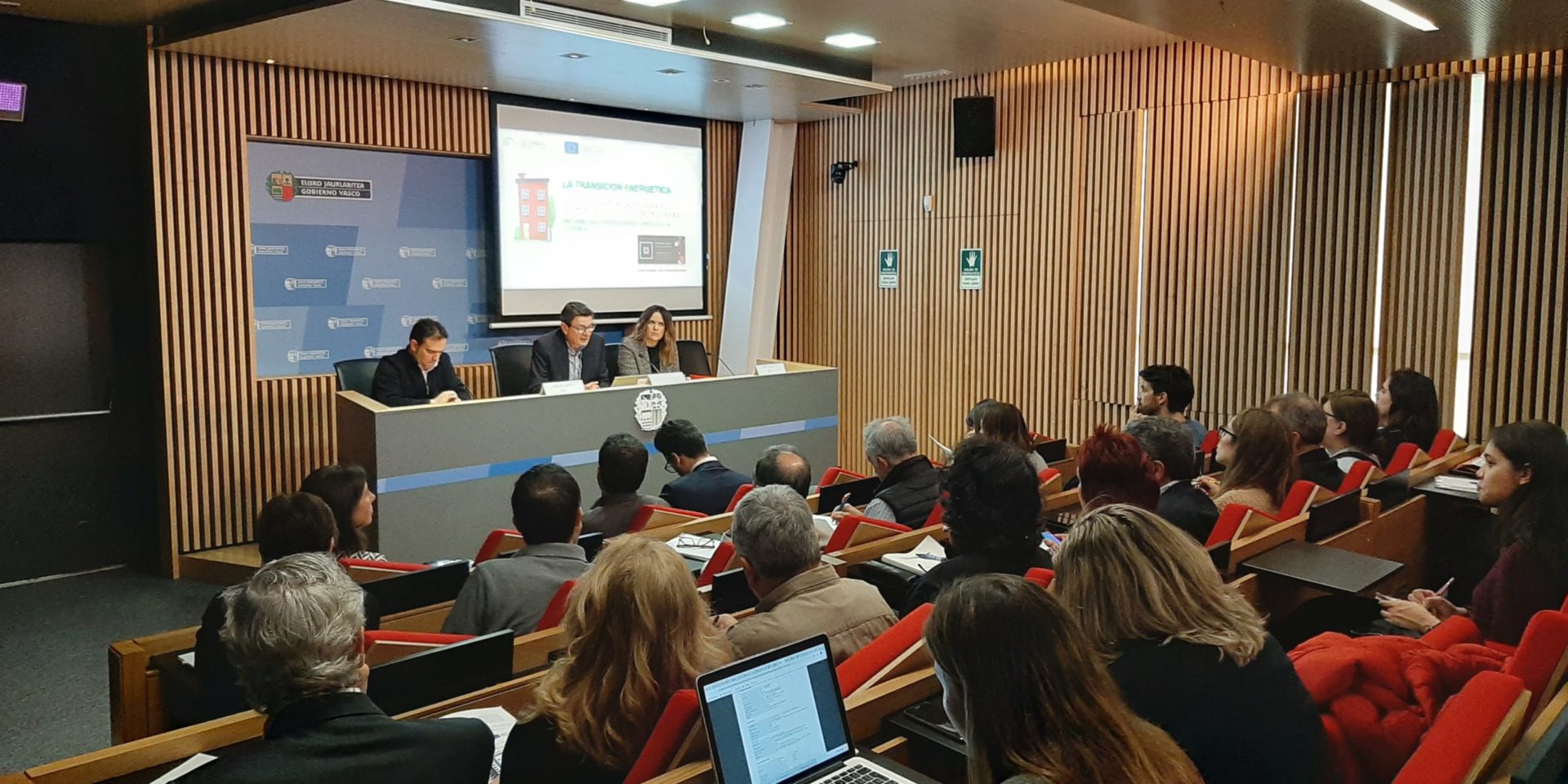On 13 February, the seminar to present innovative experiences in energy rehabilitation at neighbourhood level took place in Bilbao, organised by the Basque Government under the European Horizon 2020 Agree programme. The first presentation was given by Mario Yoldi, Director of Planning and Operational Processes for Housing of the Basque Government, who addressed the challenges and opportunities that the energy transition offers to the building sector in the Basque Country. He reminded attendees that the European directive to accelerate the efficient rehabilitation of buildings defines the need for a 3% annual renovation target, a path of no return, which presents great challenges and opportunities for the sector. He also affirmed that the economic and financial aspects of this journey are fundamental for achieving the European objectives (improving energy efficiency by 20% in 2020 and 32.5% in 2030), and that the Agree project plays an important role in reaching the traditionally excluded population and making progress with the energy rehabilitation of homes (the average age of the housing stock in the Basque Country is 44.5 years and only 1.2% has good energy efficiency, as recorded by the ITEs – Technical Building Inspections – as at 2018).
Davide Canarozzi (CEO of GNE Finance) proposed the building of healthy and dynamic communities through eco-sustainable rehabilitation, in an urban regeneration process aligned with the 2050 SDGs. In his opinion, banks are not prepared to finance energy efficiency, since the products related to it are still under development. Canarozzi presented the HolaDomus project, the first pilot programme of eco-sustainable renovation in Catalonia, developed under an innovative structure with the creation of the EuroPACE Foundation for its management. “The formula for success –he said–, is the support and advice provided to citizens and accessible financing, with affordable loans for the most vulnerable sectors through the creation of a social reserve fund”.
Isabel Izcue, from the urban regeneration corporation of Navarre (Nasuvinsa), defended the Global Intervention Projects (PIG) as a new tool for an orderly renovation of the neighbourhoods. According to Izcue, the processes of urban regeneration can be managed based on planning, but it is not possible for urban planning to direct the regeneration of all the neighbourhoods. In this area, the PIG is a tool that encourages and manages the processes of urban regeneration based on one or a number of intervention models for works of a different nature, related to accessibility, the thermal envelope or renewable energy facilities, among others. The PIG is not an urban plan but defines the intervention models through a participatory process agreed between the residents and the city council.
Jordi Mas Herrero, technical coordinator of the Metropolitan Housing Consortium of Barcelona, explained the new approach in the promotion of rehabilitation in the metropolitan area of Barcelona, taking into account the level of deficiencies encountered in the different urban areas and the average income per home. Taking the rehabilitation carried out on a group of 32 buildings in Cornellá de Llobregat as an example, he explained the process, led by the city council and its different departments of rehabilitation and urban management, which managed the subsidies from other authorities and were responsible for the contracts for the inspections and projects, agreeing these with the communities, signing the agreements and setting the maximum expenditure budgets.
Esther Zarrabeitia, manager of the DEBEGESA Department of Urban Planning and Rehabilitation, described the rehabilitation of Mogel, in Eibar, a neighbourhood of 201 homes built in 1949, with deficiencies in accessibility and thermal insulation and with financial difficulties with respect to paying for the rehabilitation works, costing over 7 million euros. As she explained, this intervention is an example of how a residents’ committee acting as a promoter and driving force behind the project, working in collaboration with public authorities as facilitators, made possible the comprehensive rehabilitation of the neighbourhood
After the presentation of these innovative experiences, the second session of the day took place, in which the participants were divided into two working groups, one on governance and management protocols and another on the organisational procedures for demand aggregation. Their contributions were noted by the Horizon 2020 Agree partners in order to improve the implementation of the project.



